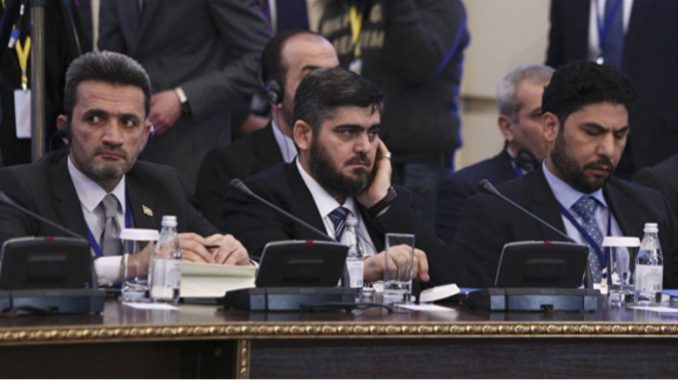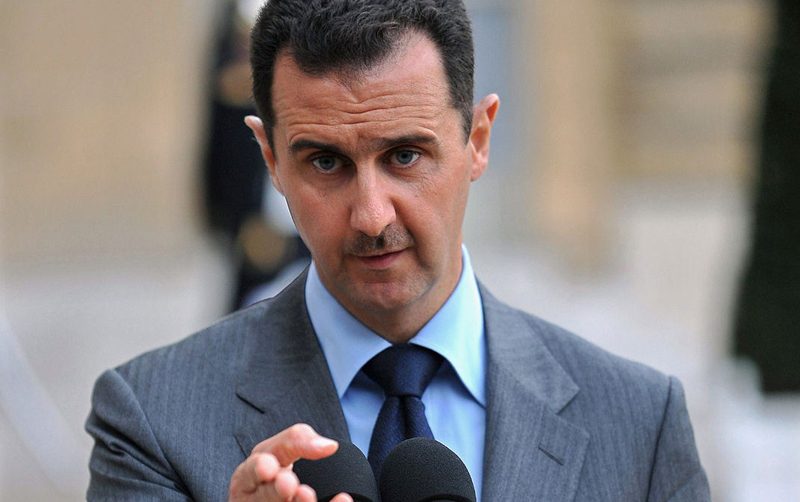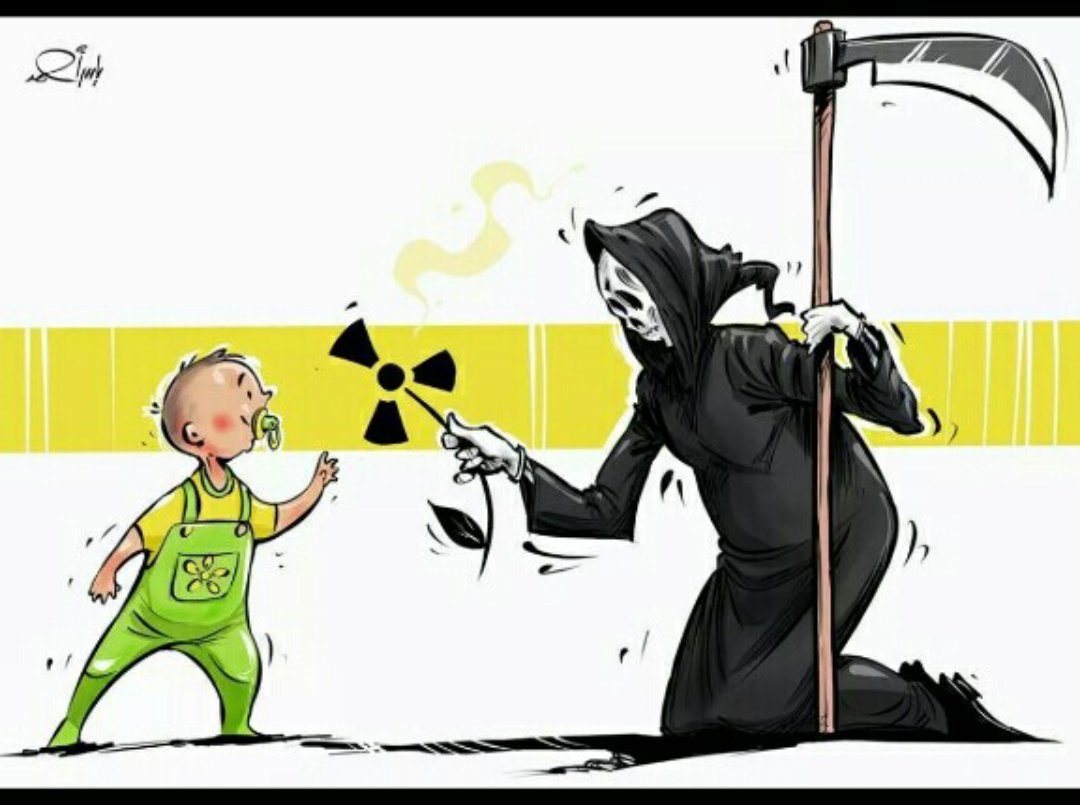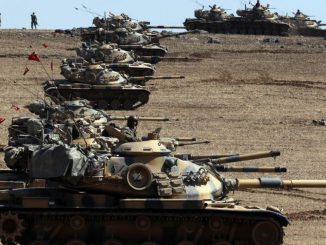
The Syrian opposition has announced on Saturday its delegates for the next round of U.N.-based peace talks in Geneva after this matter has caused tension recently.
Russia, Iran, and Turkey said they were ready to help broker a Syria peace deal, and organized peace talks meeting in Kazakhstan on January 23.
The talks have ended with Russia, Turkey, and Iran making a joint statement about the consequences of the talks and agreeing on a mechanism to support a delicate ceasefire and to support a new round of peace talks in Geneva.
The Syria peace talks had been planned to begin in Geneva on Feb. 8, but the UN envoy for Syria, Staffan de Mistura, said that he had decided to delay the UN-sponsored talks until February 20. in order to take advantage of the results of Astana talks.
With this delay, he also gave the both parts more time to choose their policy and delegations.
Opposition delegation is chosen
The Saudi-backed High Negotiations Committee (HNC) has agreed following meetings in Riyadh on the 20-member delegation they have chosen to attend the talks.
The HNC represented the opposition in peace talks last year, but was not invited to the Kazakh capital Astana.
HNC spokesman Salim al-Muslit said the opposition delegation would bring together various groups, which, as well as the HNC would include rebel factions that took part in Astana negotiations. It will also include Kurdish, Turkmen and Christian representatives, he said, but did not elaborate.
“It is a military-political delegation and it represents everyone,” Muslit said. “Each component will nominate the person it finds suitable.”
Twenty legal advisors will accompany the negotiators to Geneva, he added.
Mohamed Sabra, a lawyer, was chosen as the chief negotiator during the Geneva talks on Feb. 20, sources from the National Coalition for Syrian Revolution and Opposition Forces told Anadolu Agency on Saturday.
Nasr al-Hariri, of the Syrian National Coalition group, was named as head of the 20-strong opposition delegation to the talks.
Will the UN accept this delegation?
The choice of opposition delegates has been subject to disagreement and the U.N. envoy for Syria, Staffan de Mistura, has said it would choose the opposition delegates if they could not agree, “to make sure that it can be as inclusive as possible.”
The UN wants all the groups that describe itself as opposition t be represented in one delegation, a goal that seems hard to reach as huge differences pose itself between them. Therefore, selecting the HNC for the delegation from among its allies may be not accepted by the UN.
Other than the HNC, there are many other groups that are considered by the UN to be among the opposition including the Kurdish political wing of the YPG forces, the Cairo platform, and the Damascus platform which is backed by Russia.
These groups have doesn’t share the HNC’s view of Syria’s future and have been accused of hindering the political process. Damascus group, for example, is said to unify the opposition figures inside the country. Most of them refused the revolution when it started and formed their delegation after the UN started its political efforts to end the war. The group is supported by Russia, accepts the idea of Assad being in power and back the Russian air campaign against Syrian civilian saying its aim is fighting terrorists.
recently, members of various factions of those platforms met with Russian Foreign Minister Sergei Lavrov in Moscow and discussed among other issues the possibility to form a single delegation for Geneva. The HNC General Coordinator Riyad Hijab did not attend the meeting in Moscow.
Damascus platform’s spokesman Tarek Ahmad said that forming one group for the upcoming talks is impossible.
“I don’t think that Syrian opposition groups are capable of presenting a list of single delegation of opposition before the talks in Geneva as we lack unity among us,” Ahmad said, pointing out that only under the pressure of the three guarantor countries or the United States the opposition forces could work out a united list.
The Damascus Platform may propose its own delegation of Syrian opposition forces and civil society members from inside the country for the upcoming Geneva reconciliation talks, Ahmad said.
“We are going to have a meeting of the Damascus Platform soon and may discuss an idea of proposing a list of our own delegation of civil society members and opposition forces from inside the country to Staffan de Mistura’s office ahead of talks in Geneva,” Ahmad said.
The accusations for these groups of hindering the political process and having other agendas other than what Syrian civilians want may be true as Ahmad said: “a new round of settlement negotiations would be useless unless the civil society members were invited to participate.”
“If we want to discuss Syrian future, the new Syrian constitution or reforms, the proposed format — opposition versus the Syrian government — is unlikely to bear fruits. We need a third group which will include civil society, independent representatives as well as tribes. All these groups are included in the Damascus platform,” Ahmad pointed out.
Cairo opposition group said also that a joint delegation is unlikely to be achieved soon.
It will be wise if we go to Geneva in one delegation, but it is not a near target to achieve now. It needs lots of work, and it needs regional and international understanding in order to achieve it,” Jamal Suleiman, the group’s representative, said.
“If there are some countries that are in favor of this idea, and others are not, I don’t think it will be realistic. Unfortunately, many opposition fronts are allied to certain countries. So they don’t make independent decisions in cases like this,” he added.
The Syrian crisis began as a peaceful demonstration against the injustice in Syria. Assad regime used to fire power and violence against the civilians and led to armed resistance. 450.000 Syrians lost their lives in the past five years according to UN estimates, and more than 12 million have lost their homes.



